The Lucky One
My parents adopted my brother Carl from Thailand six years before I was born.
When I was young I never questioned the make-up of our family, and for many years wasn’t even aware of how we were different. Then one summer while home from college I went through a family photo album and came across the first pictures taken of my parents with my brother. The photographs were breathtaking. I sat in tears as I thought about this spectacular event in my family’s history that I knew very little about.
Seeing these images opened up a whole new world for me and sparked a curiosity that has kept me asking questions ever since. From that summer on I have photographed adoptive families and had the privilege of documenting international, interracial, single, and gay- and lesbian-parent families. With each project I find another piece to the puzzle and I learn more about myself, my family, and what it means to become a family.
In 2006 I experienced the other side of the adoption equation during the nine months I spent in Ethiopia as a Lewis Hine Documentary Fellow through the Center for Documentary Studies at Duke University. Placed with an organization called Hope for Children, which supports children whose families have been affected by HIV and allows them to stay within their own communities, I saw the efforts Ethiopians are making to support as many children as they can.
But, too, I saw the pain developing countries feel when they have no choice but to send their children abroad. In addition to being a life-changing experience, this exposure was essential in my quest to understand adoption. Having only seen adoption from the perspective of the adoptive family, I hadn’t seen the entire picture. Although I spent time in only one country and one community, seeing these harsh realities helped me gain a more critical eye and realize the circumstances and pressures felt by communities worldwide.
Upon returning from Ethiopia I met Alison Aucoin. After surviving Hurricane Katrina in New Orleans she was starting her life over again in Durham, N.C., and was in the early stages of adopting from Ethiopia. Soon after we were introduced we decided to collaborate to document her adoption experience.
During the 14 months that followed we used audio and photographs to record the preparations and adjustments Alison was making for her baby and her life as a mother. In July 2008 we traveled to Ethiopia to bring home one-year old Edelawit, which means “the lucky one” in Amharic.
Alison has experienced a range of emotions, from intense joy to grief to sorrow. Because she had to remove Ella, as she is now called, from her caretakers and culture in order to start their life together, the happiness that Alison feels has been tempered by sadness.
Through her own feelings of loss after Hurricane Katrina, Alison has an intense awareness of the pain created by sudden displacement and disconnection from home. The experience of going to Ethiopia also made her conscious of the sadness the entire country feels as they are forced to seek help from abroad for their children.
The photographs in this essay illustrate a small part of the journey Alison, Ella, and I have taken together and offer a glimpse of the complexity of international adoption.
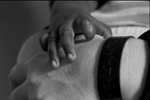
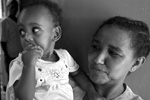
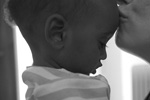
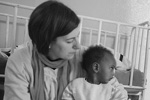
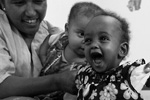
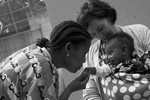
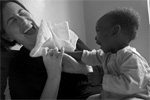
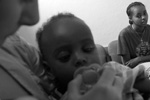
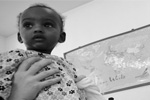
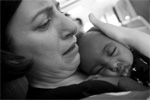

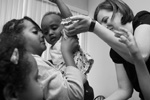
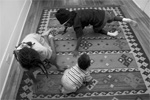

Comments 1
Contexts Magazine » The Lucky One | ozkt.com
February 17, 2009[...] Contexts Magazine » The Lucky One [...]